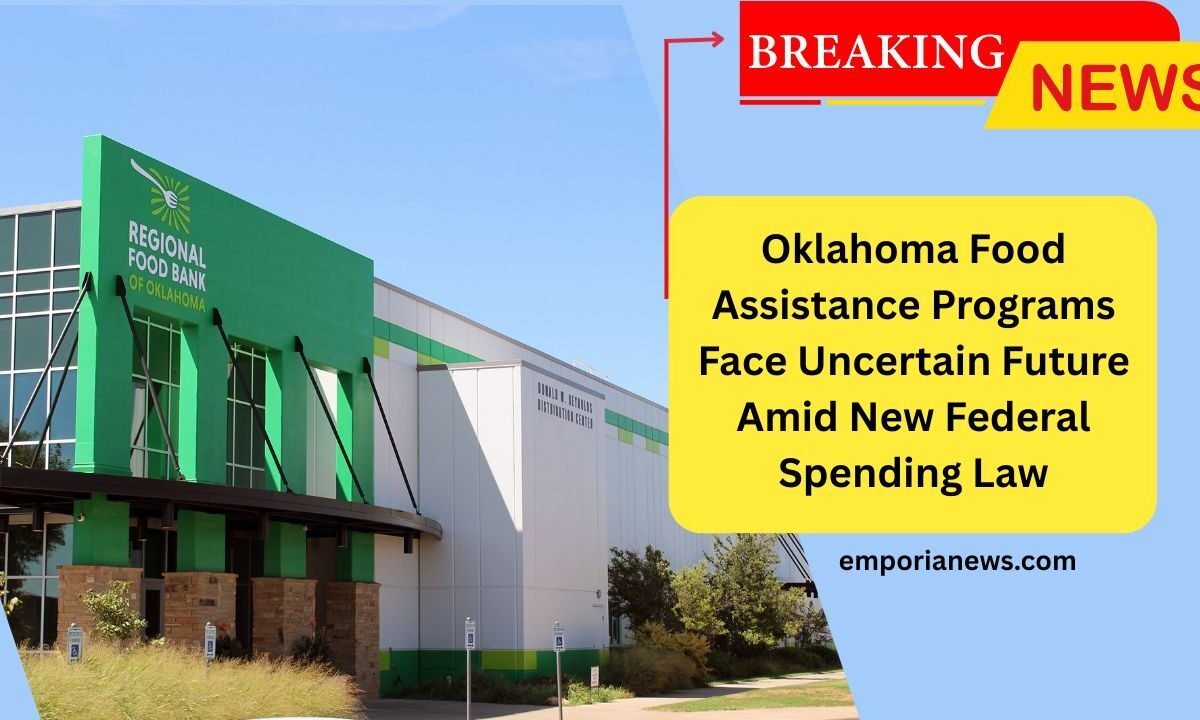While most of the new policies and restrictions introduced by the recently enacted federal spending bill will not come into effect until 2028, anti-hunger advocates in Oklahoma are already raising serious concerns about the potential fallout.
They warn that the legislation poses a significant threat to food assistance programs such as SNAP (Supplemental Nutrition Assistance Program) and free school meal initiatives, especially for vulnerable communities across the state.
Non-Profit Leaders Sound the Alarm on Looming Crisis
Jeff Marlow, CEO of the Food Bank of Eastern Oklahoma, described the situation bluntly:
“It’s definitely going to be a food crisis.”
Similarly, Chris Bernard, CEO of Hunger Free Oklahoma, highlighted the gravity of the issue:
“We called it a setback. It’s a fundamental change to how the program operates.”
Both leaders are bracing for a drastic shift in the food support landscape in Oklahoma due to changes ushered in by the so-called “Big Beautiful Bill.”
Background: Who These Organizations Serve
The Food Bank of Eastern Oklahoma works with over 685 partner agencies across 24 counties, distributing critical food supplies to thousands of residents.
Meanwhile, Hunger Free Oklahoma coordinates and advocates for the SNAP program, which currently supports nearly 700,000 Oklahomans experiencing food insecurity.
Congressional Approval Despite Warnings
Despite meeting with Oklahoma’s congressional delegation to share their concerns, Marlow and Bernard watched lawmakers vote in favor of the bill.
“I understand what they’re trying to do,” said Marlow, “but from our side, it’s difficult to support these cuts.”
Shifting Costs and Reinstated Work Requirements
Under the new law, a significant financial burden will now fall on individual states, with the federal government reducing its share of SNAP funding.
Additionally, the law reinstates work requirements for applicants, offering limited exemptions, which could further restrict access to benefits for low-income residents.
Chris Bernard emphasized the financial implications:
“This vote could raise state costs by as much as $300 million.”
Jeff Marlow added:
“Oklahoma was already stretched thin. These cuts are unlike anything we’ve ever had to manage before.”
Consequences on Health and Education
Both advocates pointed out the broader consequences of reduced food access, noting that it doesn’t just affect hunger—it ripples through other critical areas.
“Everything suffers,” Bernard explained. “If children aren’t eating enough, their academic performance suffers. If families and people with chronic illnesses like diabetes don’t get the nutrition they need, healthcare costs spike.”
Currently, one in six Oklahomans face food insecurity, including one in four children, indicating that the situation is already critical without the added pressures of the new law.
A Call for State Action and Unity
With the federal government stepping back, the responsibility now lies heavily on the Oklahoma State Legislature to fill the gap.
“This isn’t about politics,” said Marlow. “It’s about coming together as Oklahomans and finding a solution. We need to act with that kind of collective urgency.”
Bernard echoed the sentiment, stating:
“Only the combined resources of government can address this crisis. Unfortunately, one major piece of that support system has just been pulled away.”
With sweeping changes to SNAP funding and eligibility requirements set to take effect by 2028, Oklahoma’s food aid infrastructure faces a pivotal challenge.
Non-profit leaders are calling on the state to respond swiftly and decisively to prevent a full-blown hunger crisis.
Now, more than ever, coordinated effort and government intervention will be essential in protecting the well-being of hundreds of thousands of residents.




